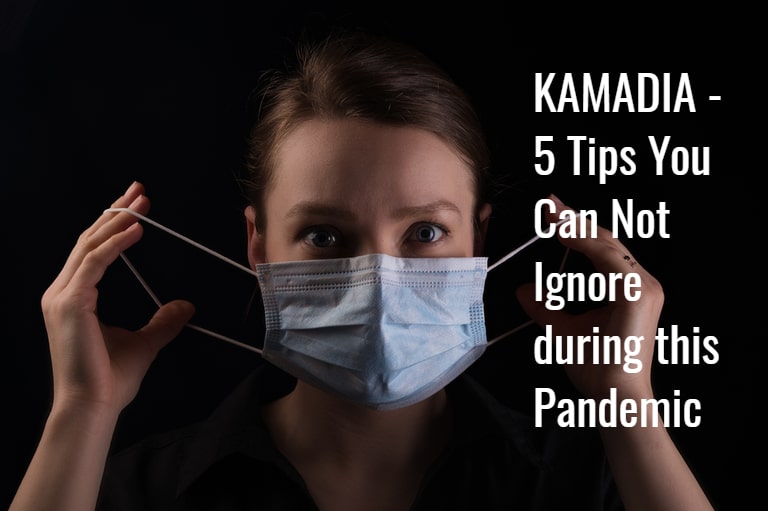By Aly Kamadia, Editor-In-Chief of iDose
Editor’s note: The following piece is for educational purposes, and does not replace professional treatment
During this most unfortunate global crisis, iDose has been flooded with all sorts of questions and comments about the Coronavirus. As Editor-In-Chief, I welcome any and all questions and comments from you – our readers. Though rather than answering selected questions, I thought I’d offer some very easy to read tips based on the sort of questions coming in:
Follow Expert Advice that is not controversial
Even though you’re likely familiar with the following advice, it’s worth reiterating:
Frequently wash your hands thoroughly with soap (some sources say 20 seconds plus) and use an alcohol based hand sanitizer if that option is unavailable (at least 60% alcohol; we have an entire article devoted to the subject of hand sanitizers in this week’s issue).

Practice ‘social distancing’, meaning staying away from mass gatherings and at least two meters away from other people (according to the Center for Disease Control and Prevention; we also have an entire article devoted to social distancing this week). This obviously includes not touching other people (e.g. shaking another person’s hands).
Cover your nose and mouth if you sneeze or cough (e.g. with a tissue that you should dispose of immediately after).
Disinfect surfaces that might be exposed very often (e.g. your mobile phone).
Wear a mask if you are sick and going outside (WHO has a good video on how to wear it, duration, and how to dispose).
Avoid touching your eyes, nose and mouth.
Don’t share things like utensils with people. Remember, the virus is primarily spreading from human to human.
Depending on where on the planet you’re reading this from, you might very well be compelled to self isolate even if you’re healthy.
Though if you find yourself free to roam without public authorities watching you and are also sick, STAY HOME. Self isolate, and contact your local medical authorities (via phone) for instructions.
The general advice from my home country (Canada) at the moment is to call the Doctor if you are feeling sick and/or have relevant symptoms. Prominent symptoms include but are not limited to fever, cough and shortness of breath (we have a quick article written by an American Doctor and Professor of Medicine this week that covers the topic of when to see a Doctor).
Beware of Propaganda in the form of FAKE “Information” and FAKE “News”
Even though iDose is not a news organization (i.e. we’re more on the analysis side), our slogan is “Filtering out Fake News & Stupidity”. In fact, one of the reasons that I launched iDose Magazine last September was to combat increasingly heightened propaganda.
When it comes to news on coronavirus, one easy method you can stick to is CHECKING THE SOURCE.
If you hear about a miracle Vitamin “cure” from some guy named Bob (or worse, in a whatsapp message that doesn’t give you a credible source to go to online to verify the information), verify the information by checking what credible organizations are saying about the alleged “cure”. As an example, what are Scientists on iDose, trusted TV news networks, and the World Health Organization saying about this so called “cure”, if anything?

Remember, ALWAYS CHECK THE SOURCE (this week, iDose also has an article on Vitamin C and a separate piece on conspiracies)
At the moment of this writing (March 17th, 2020, a day before publication), there is no known cure for coronavirus
This is a self-explanatory fact.
Many People will go nuts watching the news 24/7
I’m not advising you to completely stop watching or reading the news. Indeed, you should be doing so at reasonable intervals to keep up to date on the latest information (or be in regular contact with someone who is and whose judgement you trust).
But whether you believe them or not, many (if not most) Clinical Psychologists take the view that if you are constantly exposed to negatively valenced news, it may certainly effect your mental health.
In his book titled The Anxiety Epidemic, Graham Davey devotes an entire section that discusses the increasing sensationalism of the news industry and the harm that it brings to many peoples mental health. He’s hardly alone. Though it’s worth noting that along with being a Professor of Psychology at the University of Sussex, Davey is the past President of the British Psychological Society and Editor-In-Chief of the Journal of Experimental Psychopathology. Put differently, he’s not Bob trying to sell you a vitamin “cure”.
Even though there are many idiotic Political leaders in the world, you have many reasons to be Optimistic
People familiar with my writings know that I’m hardly shy when it comes to critiquing political leaders. And it’s no secret that “advanced” countries such as Canada, the United States and the United Kingdom have been slower than a paralyzed turtle in responding to this crisis at the federal level.
It’s also no secret that we have many idiots and leaders who don’t know how to spell the word m-o-r-a-l-i-t-y. President Trump previously referred to the coronavirus as a “hoax”. And it’s inexcusable that Canadian Prime Minister Justin Trudeau said the following just a few weeks ago:
“Canada has, unfortunately, very recent experiences with a virus of this type… Our experience with SARS in 2003 meant that we created protocols and a system that is handling the concerns around this [coronavirus] threat very, very well. That’s why the [coronavirus] threat to Canadians remains low here in Canada.”
Neither comment was surprising. But it’s worth noting that even inadvertently, such comments can, and probably have led to needless suffering and/or costed lives. Good intentions are never an excuse for utter stupidity – particularly at such high levels of government.
Thankfully, the world’s fight against coronavirus doesn’t rely on some of the idiots you see popping up on your tv/mobile screen – even if they happened to be heads of state.
There are many scientists (both natural and social), civil servants and organizations (e.g. World Health Organization) that are made of up people who have ethics, are intelligent, and who don’t exercise the sort of poor judgement that too many political ‘leaders’ do.
And remember, it isn’t only up to them. Unless this author sees evidence to the contrary, your responsibility to adhere to expert advice, such as the easy-to-follow rules outlined in tip one, couldn’t be more paramount.
Because if your country is currently at war with this virus, which in many cases only time will reveal, it is a war in which needless suffering and casualties will mount unless we all start acting more responsibly – even if that means we have to change our lifestyles.
Indeed, I’ve been told that our species has been masterful at adapting to all sorts of ruthless circumstances during our short period on this planet. This time will be no different if we face such a calling.
Aly Kamadia is Editor-In-Chief of iDose. To read more articles by Kamadia, click here. To read the Editor’s message, click here.
© All Rights Reserved
Note: The views expressed in this article are the author’s, and not the position of Intellectual Dose, or iDose (its online publication). All rights reserved unless stated otherwise



